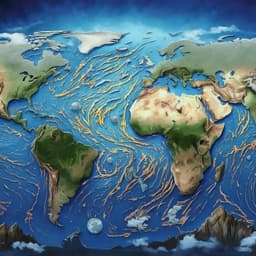
Earth Sciences
Increased Asian aerosols drive a slowdown of Atlantic Meridional Overturning Circulation
F. Liu, X. Li, et al.
Discover how increased Asian anthropogenic aerosols are influencing the Atlantic Meridional Overturning Circulation (AMOC) slowdown. This groundbreaking research by Fukai Liu, Xun Li, Yiyong Luo, Wenju Cai, Jian Lu, Xiao-Tong Zheng, Sarah M. Kang, Hai Wang, and Lei Zhou reveals the complex interactions between air pollution and climate systems, emphasizing the urgent need for emission reductions in Asia.
Related Publications
Explore these studies to deepen your understanding of the subject.







